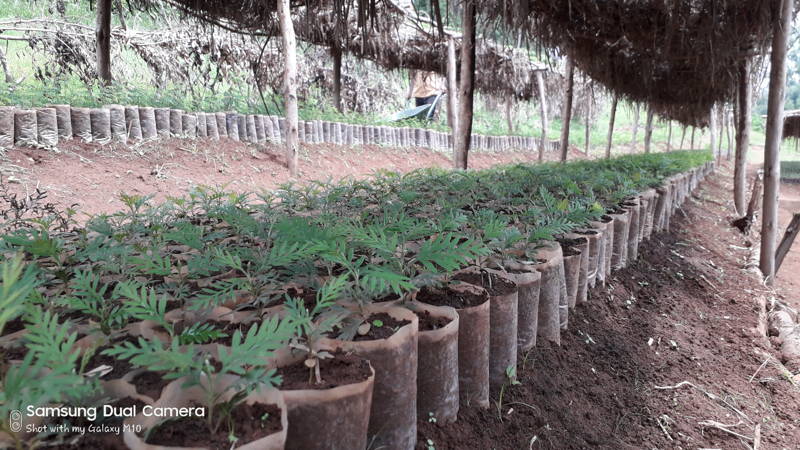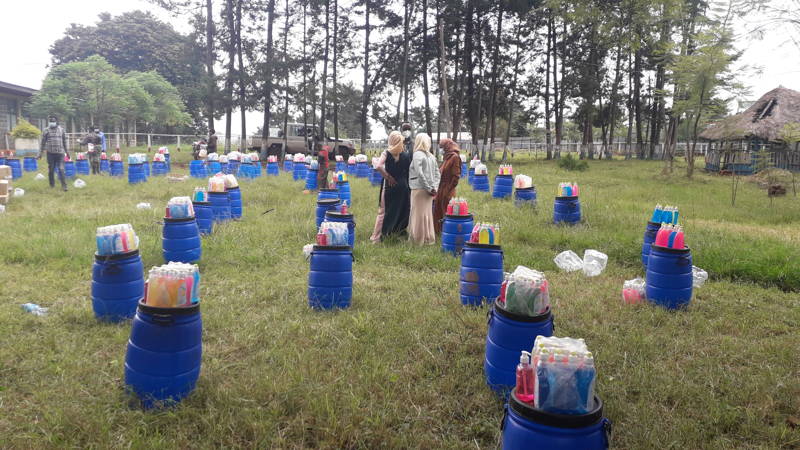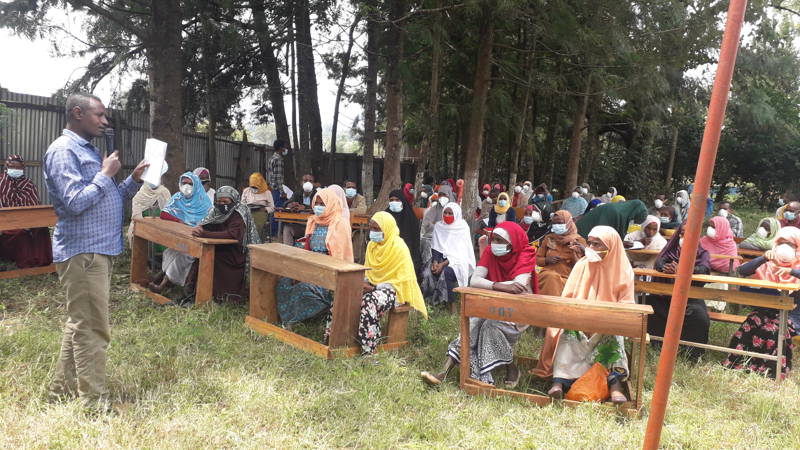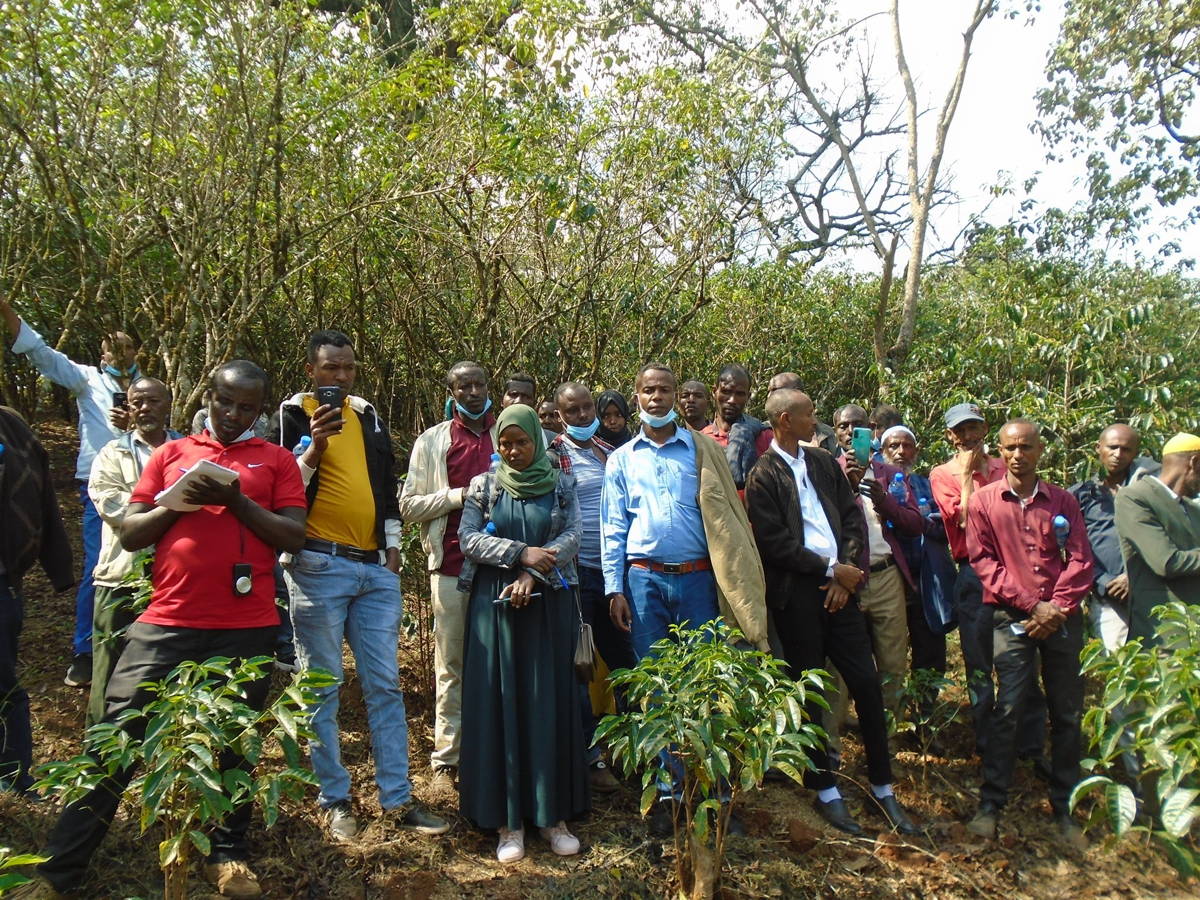
Trees, Nutrition, Beehives: Biodiversity in Jimma, Ethiopia
As part of the planning for our WaSH project, which we carried out with Welthungerhilfe, we also developed quality training for farmers and, thanks to funding from the German government, initiated a biodiversity plan, which was a useful addition.
Various aspects of life are closely intertwined. Often, one focused project is not enough to make a difference and achieve improvements. Allocating drinking water sources only makes sense if hygiene trainings are carried out at the same time. These in turn can only achieve resounding success if sanitary facilities are available for all residents. Quality training is pointless if coffee plants cannot grow optimally due to a lack of biodiversity.
In short
- Project volume: 500,000 € (plus grant from BMZ; a further 700,000 € for project extension until 2024, to be distributed among three sub-projects)
- Implementation period: since 2015
- Location: Jimma, Ethiopia
- Coordinates: 36.65oE to 36.76oE; 7.63oN to 7.71oN
- Beneficiaries: ca. 10,000 farmers
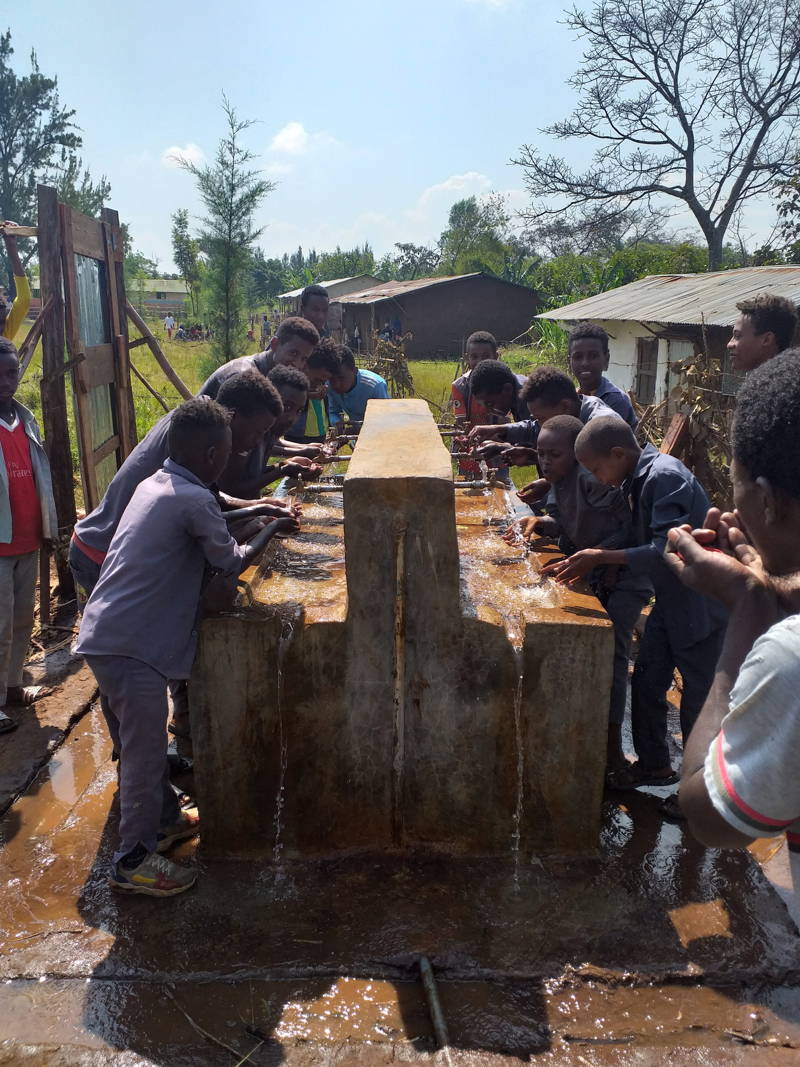
Why was this project so important?
Promoting biodiversity in the region, where we also conduct quality and hygiene trainings in close cooperation with Welthungerhilfe, made sense for the reasons mentioned above. Only when biodiversity exists can a high-yield, high-quality harvest be possible. The quality of the coffee can then be improved through training and education of the farmers.
When we started to implement our tripartite WaSH project in 2015, the promotion of biodiversity was made possible by funds from the German government. Thanks to BMZ – the German Federal Ministry for Economic Cooperation and Development – it was now possible to raise tree nurseries and plant half a million trees. Welthungerhilfe, as our local representative, was also able to organize cooking classes for the population, hand out food and provide information about a balanced diet. Coffee Circle co-founder and CEO Martin Elwert helped initiate the biodiversity project.
Stephan Eicke: Martin, how did the biodiversity project come about?
Martin Elwert: Biodiversity was added to our WaSH project. Here, it was about preserving plant diversity, planting trees, preventing erosion. The third part of the BMZ project – together with Biodiversity and WaSH – was Value Chain, the education and training for farmers. With Welthungerhilfe as a partner, we received funding from the BMZ, almost half a million euros, which went into biodiversity.
Did we implement the project alone?
No, with HUNDEE, a local NGO in Ethiopia. The original plan was to implement the project with the Michael Succow Foundation. Succow is a famous agricultural scientist who sat in the transitional parliament of the GDR. He was jointly responsible for the national park program and thus had a large area of the former GDR placed under nature protection. Succow is a passionate bird researcher and a fascinating person: He traveled under strict military protection to the northwest of Ethiopia, to the Sudanese-Eritrean border, to the country’s corner, to spend the night there and observe birds. He was then very excited to tell us about how he went swimming there and saw crocodiles.
Why didn’t the collaboration with the Michael Succow Foundation happen?
When we received funding from the German government, the prerequisite was to implement the majority of the project with local NGOs. When the government distributes funds, Welthungerhilfe can be the chief coordinator, but most of the work has to be done by local NGOs. The money has to be poured into local structures and should not go to Welthungerhilfe in Bonn, which hires people locally. At first it was a challenge for us to find a local NGO in Ethiopia, but then we contacted HUNDEE, with whom we implemented the biodiversity project.
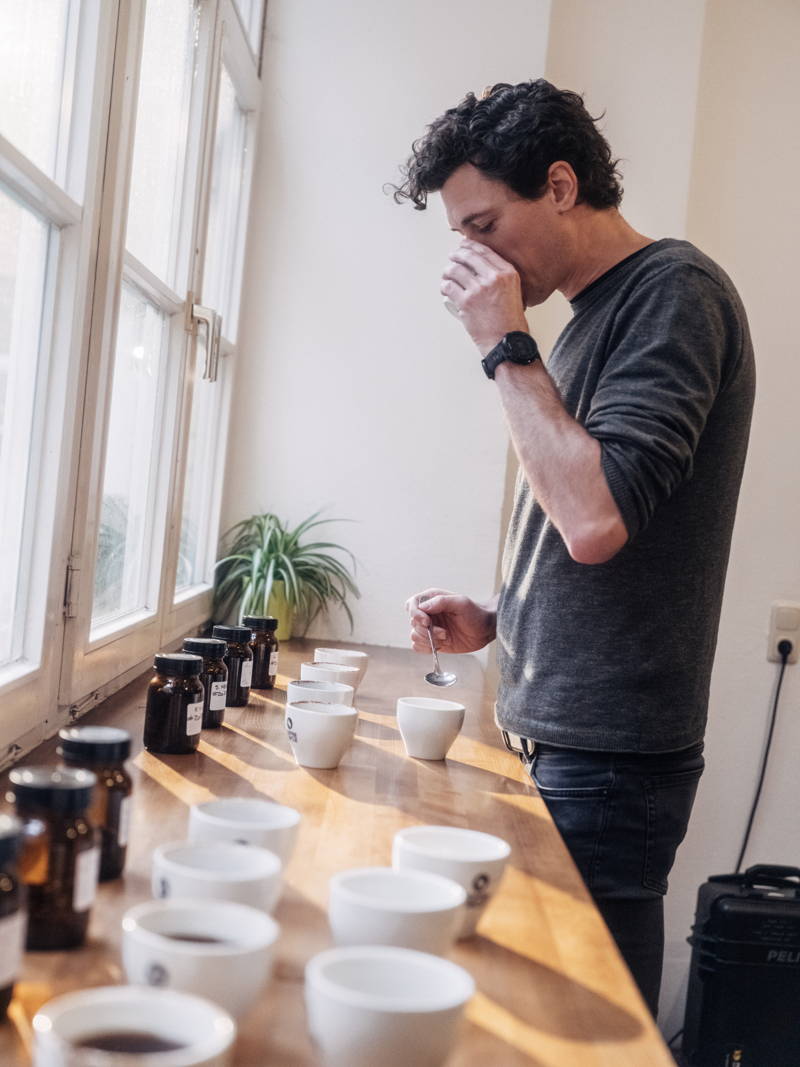
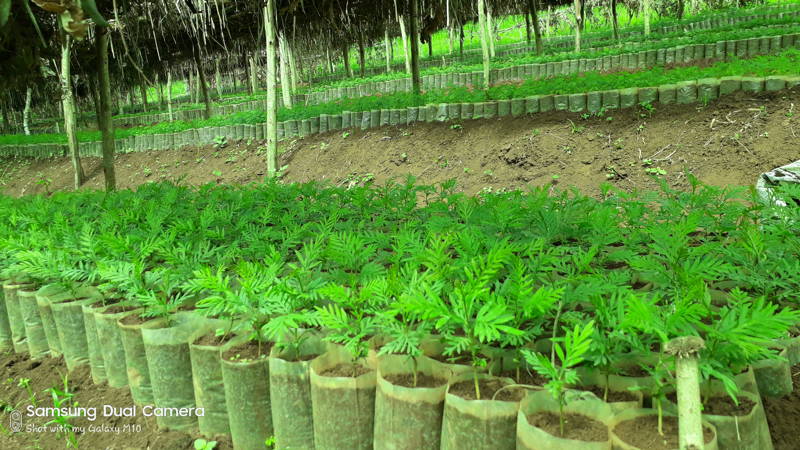
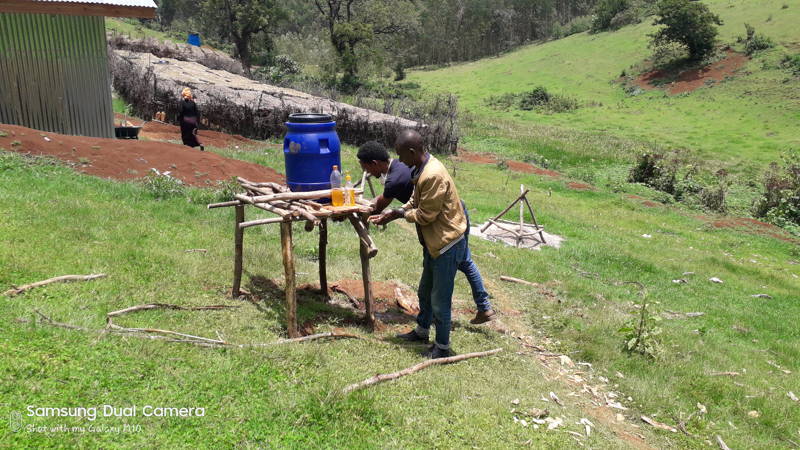
How was the project implemented?
In many parts of Ethiopia, malnutrition among the population remains a major problem, especially for women and children.
The primary objective of the BMZ project is to combat malnutrition by improving:
access to safe water supply, sanitation and hygiene
availability of nutritious food
sustainable use of forest resources
Optimizing the capacity of coffee cooperatives
So in summary, through nutrition-sensitive agriculture.
Here we are working closely with Welthungerhilfe and HUNDEE in Ethiopia. The first task was to inform HUNDEE about our goals and train them accordingly because said NGO was a small company that initially had neither the necessary experience nor the required capacities to directly tackle the various aspects of the BMZ project in an energetic manner. However, thanks to close cooperation with Welthungerhilfe and several training sessions, this challenge was overcome and initial initiatives were quickly launched.
In many parts of Ethiopia, malnutrition among the population remains a major problem, especially for women and children. In collaboration with local communities, we held cooking and nutrition courses for close to 950 women in 2020 with our team on the ground. The goal of the courses is to provide education and practical tips on balanced nutrition. Unbalanced nutrition and a lack of resources lead to malnutrition, especially among children, with harmful consequences for their health. As part of these courses, more than 580 children were screened for malnutrition by trained personnel: If critical levels were found, the children and their parents received support and care from doctors beyond the course. As direct Corona aid, an additional 560 kg of food (powdered beans, barley, corn, fandisha, coffee, oil and sugar) was distributed to families in the communities during the same year.
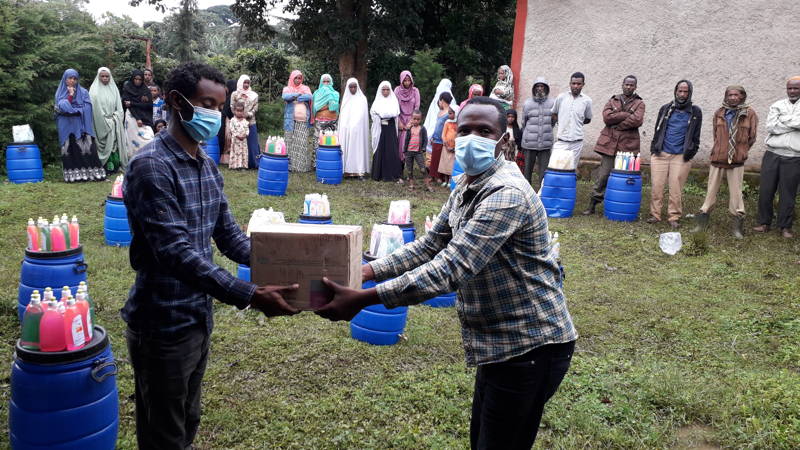
It was also crucial to develop strategies for sustainable forest use that communities could implement to protect biodiversity. This is how the idea for Participatory Forest Management (PFM) was born: Ethiopia’s forest lands have been in great danger for several decades. More and more areas are being converted into farmlands. For this purpose, trees are being cut down. This has several devastating disadvantages for local communities. Among other things, it is becoming increasingly difficult to obtain wood products. At the same time, the quality of the soil, or more precisely the fertility of the earth, suffers. A vicious circle develops and more and more trees have to be cut down. Biodiversity suffers enormously.
PFM is an opportunity to counteract this: Here, residents of the local communities manage the forest and its stock together with the government’s forestry office. However, implementation turned out to be more difficult than planned. Although the forest was designated as communal land, the trees themselves belong to the government, so intervening in the planting is not easily possible. With the participation of WHH, HUNDEE, experts and the target group, it was discussed which aspects of participatory forest management could be adapted and applied. With further support from the local consultant, we plan to continue conducting trainings for the implementation of conservation measures and additionally for the development of income generating community activities that do not involve timber exploitation, such as beekeeping and plantation.
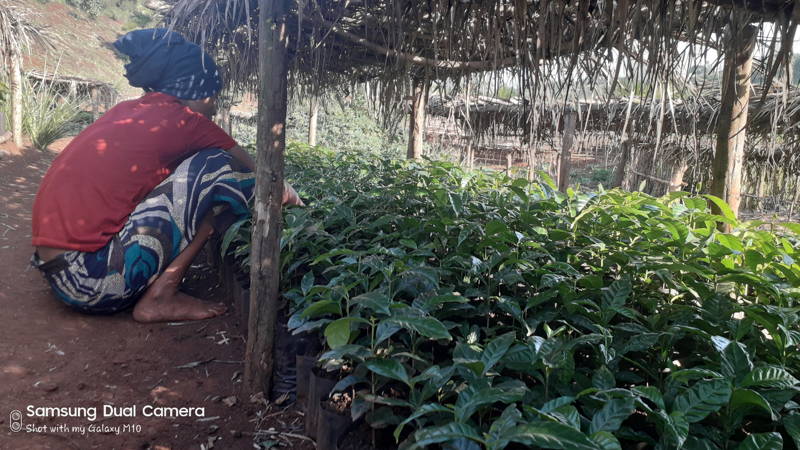
Our Coffees from Ethiopia
What has changed?
Thanks to the BMZ funding, we have been able to plant trees locally, prepare beehives, open tree nurseries and raise papaya trees. In total, we have planted just over half a million trees in the region so far (as of December 2021).
10,000 coffee farmer families take advantage of an improved food supply, use clean drinking water, and implement hygiene standards and healthy eating practices to improve their nutritional situation. In addition, 500 coffee farmer families have been trained in resource-conserving agricultural practices and are currently in the process of diversifying their agricultural production by growing fruits and vegetables.
In September 2021, we signed a contract with Welthungerhilfe in which we committed to continue the WaSH project with its three sub-projects until December 31, 2024, and to support it financially with a total of €700,000. The planning and evaluation phase started on September 1, 2021 and will last six months. We will of course keep you informed about the next steps and concrete implementation plans.
A report by Stephan Eicke
